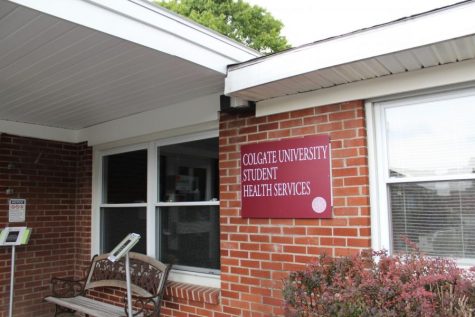Minus the City: Not A Happy Subject
If you are a sentient being that walked on Colgate’s campus this past weekend, you knew something was off. On any other weekend, people would be out and about, chatting with friends, running errands and heading off to commit debauchery on Broad Street. This weekend, campus was quiet and somber, completely out of the norm. It’s understandable, though, seeing it is not the norm for a weekend to begin with the reporting of two sexual assaults to university administration and fraternities, which led to the cancellation of Friday night Greek social events in solidarity for the victims. It’s not the norm for SGA to call an emergency Senate meeting on a Saturday afternoon.
It’s not an exaggeration to say these reported sexual assaults have sent shockwaves throughout campus. They are forcing many to face the reality of Colgate’s faults. People love Colgate, and idealize the institution and its culture. We’re an intelligent student body aware of the nationwide university sexual assault epidemic that also wholeheartedly believes sexual assault is someone else’s problem. We mistakenly think that because we don’t have direct contact with this problem, it’s a non-issue. The email sent by Interim Vice President and Dean of the College Mark Thompson on Saturday afternoon confirmed that the nightmare of rumors that had circulated for 24 hours was true.
Moving forward won’t be easy, but it is necessary. There are some questions that need immediate attention – how do we help the survivors? How are we punishing the perpetrators? How will this affect the SGA presidential election and the fraternity implicated in the assaults? It is essential, though, to consider the long-term impact of how we respond. Our goal should not simply be justice for two women, our goal should be eliminating sexual violence at Colgate altogether. It’s ambitious, but it’s entirely possible if we combat the problem with a clear understanding of its causes. Some people argue that Greek life is the problem, and that the only solution is eliminating the Greek system at Colgate. These people are naive, but I applaud them for recognizing the correlation between fraternities and sexual assault. They understand, on a surface level, an issue that plagues society as a whole. They are almost grasping at the fact that, at the root of sexism in the United States, there is an unconscious belief that women do not have full ownership of themselves, and that men are entitled to this commoditized form of the human body. Very few men consciously believe that women are lesser, but are hyper aware that their masculinity and status as men is determined by their success in sexual pursuits of women – how many and how often. Groups of men coming together concentrates the problematic masculinity complex and provides it a social platform. Fraternities are not the only male-dominated social groups on campus, which is why banning Greek life won’t solve the problem. Sexual assault is not a women’s issue or a Greek issue, it’s a men’s issue.
I fully understand that both men and women are capable of perpetrating and falling victim to sexual violence, but we need to face the reality that one in five women, not men, are being attacked by men, not women. As a woman, there is only so much I can do on the prevention front – educating people about consent, not going out alone, watching out for myself and my friends, refusing to be a bystander. This shouldn’t be my burden, but it is. Men need to accept their share of the burden and work within their respective social circles to redefine masculinity. They need to quit being “chill dudes” and start calling each other out when words and actions become predatory, objectifying and sexist.
Colgate has reached a moment with a lot of potential. We’re on the cusp of major social change, and it is entirely on us to determine how effective it is. We decide whether or not our response results in a social evolution or revolution. We can either contort the issue into a different abstraction of the sexual assault epidemic, or attack the problem at its root and ensure that Colgate is a safe and supportive place to pursue an education. We don’t need more guest speakers, we don’t need more training: we need men to take action.










